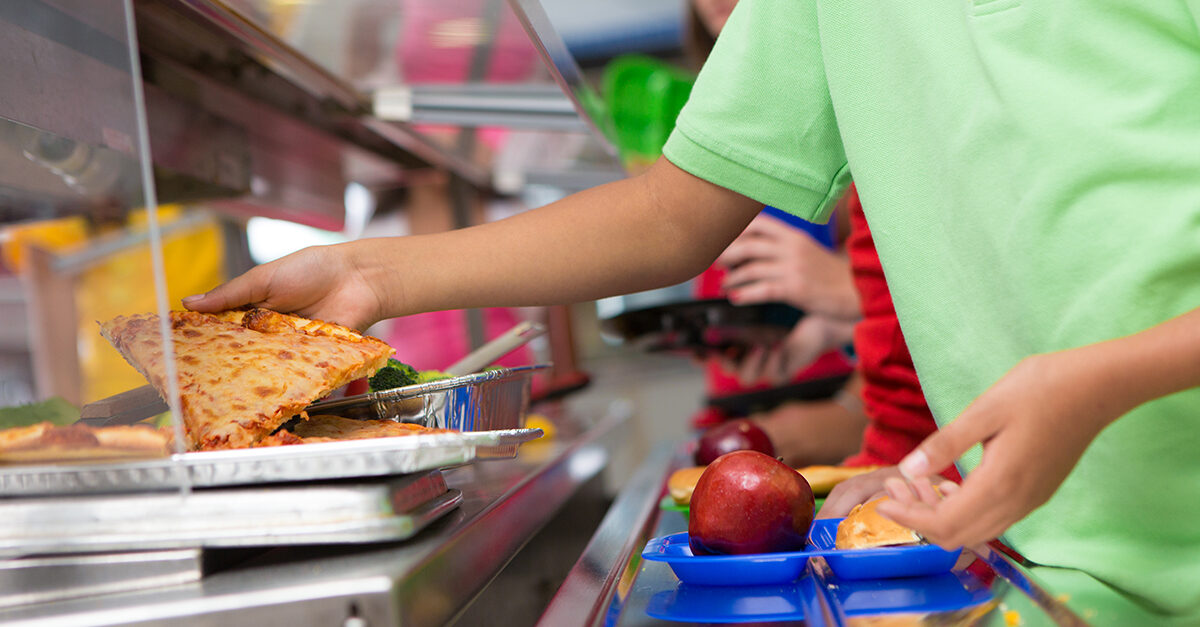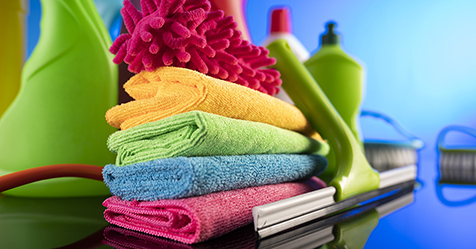While handwashing and mask-wearing to protect from COVID-19 are top of mind as students return to school buildings in-person, another invisible danger lurks in the lunchroom. Food safety is typically not an area of expertise among school administrators and facility managers, whose primary focus is not foodservice but education and building maintenance.
According to the U.S. Food and Drug Administration (FDA), foodborne illness impacts approximately one out of six Americans each year. At best, a bout of foodborne illness results in unpleasant discomfort for several hours and, at worst, extended illness or even death. As schools reinstitute foodservice, administration and support staff should take time to review their food preparation equipment and practices and take action to prioritize food safety.
Food safety challenges in schools
Unlike in restaurants, foodservice is not the primary focus of schools. In addition, food preparation and service occur in a limited timeframe, requiring a good bit of urgency to feed hundreds of students over the course of two or three hours. In many cases, food safety only becomes a priority when a school fails an inspection or when students and staff become sick due to foodborne illness.
The precise points of inspection depend on the local and state codes, which may vary significantly. While the FDA provides oversight and a minimum set of standards that must be met, local jurisdictions may have more rigorous standards that exceed FDA standards in some areas. Often, schools are unsure exactly what will be evaluated during the inspection. For this reason, it’s wise to spend some time investigating the codes relevant to your location to ensure preparedness.
Food safety fundamentals checklist
While inspections may differ depending on location, several fundamental food safety best practices and critical risk factors are common to all health department evaluations. Include these tasks on your food safety and inspection preparation checklist.
- Implement pest control measures – Unfortunately, pests are a reality in many school buildings and can trigger the spread of foodborne illness by transferring germs onto food and food surfaces. Particularly in buildings that have been unoccupied, it’s important to implement pest control measures well in advance of FDA inspections. Inspect the facility for possible entry points, look for signs of pests chewing through boxes and other evidence such as rodent droppings or nests. Inspect deliveries to minimize the potential of new vermin being introduced into the building. Set traps and baits and inspect them regularly for evidence of pests.
- Inspect water fixtures – During periods of inactivity, grease interceptors and drainage lines can become blocked due to the lack of regular water flow through the system. Inspect all water fixtures prior to reopening to ensure adequate draining through an approved and operational sanitary sewer system.
- Train staff – Significant turnover may have occurred after extended school closures. New employees may not have worked in a foodservice role in the past and may lack awareness of basic food safety practices. Conduct training for all staff, emphasizing the importance of food safety and best practices to minimize the risk of foodborne illness.
- Evaluate equipment – Take time to evaluate safety tags on equipment, including range hood systems and fire extinguishers, and check for any food safety certifications that may have expired. Verify the operational integrity of both hot and cold food storage areas. Are refrigeration and freezer units maintaining the proper temperatures? Are heating units operational and able to maintain temperatures at 135 degrees Fahrenheit? Take time to evaluate equipment prior to use so that repairs or replacements can occur in a timely manner.
- Ensure potable water quality – Ensure there is sufficient potable water available at the proper temperature for adequate handwashing and cleaning of equipment and utensils. Water heaters may need to be repaired or replaced to guarantee hot water is available for appropriate cleaning.
- Consider third party assessments – In cases when there is limited staff or time to adequately prepare for an inspection, consider contacting a third-party. Failure to prepare in advance for the FDA inspection is like failing to study for a final exam. Once the FDA inspection occurs, the results are public and remediation efforts become urgent, as they may even delay the opening of a school. Consider using a third-party auditor who can provide regular assessments, allowing for improvements prior to FDA inspections. This not only increases the likelihood of a more favorable rating, but it may also help ensure that best practices are in place for the safety of the students and staff.
School maintenance leaders understand the role that a safe facility plays in education. They should apply this understanding to food safety. By educating foodservice staff, administrators, custodians, students, and even parents, schools can play a tremendous role in advancing food safety not only at school—but in homes and communities as well.



